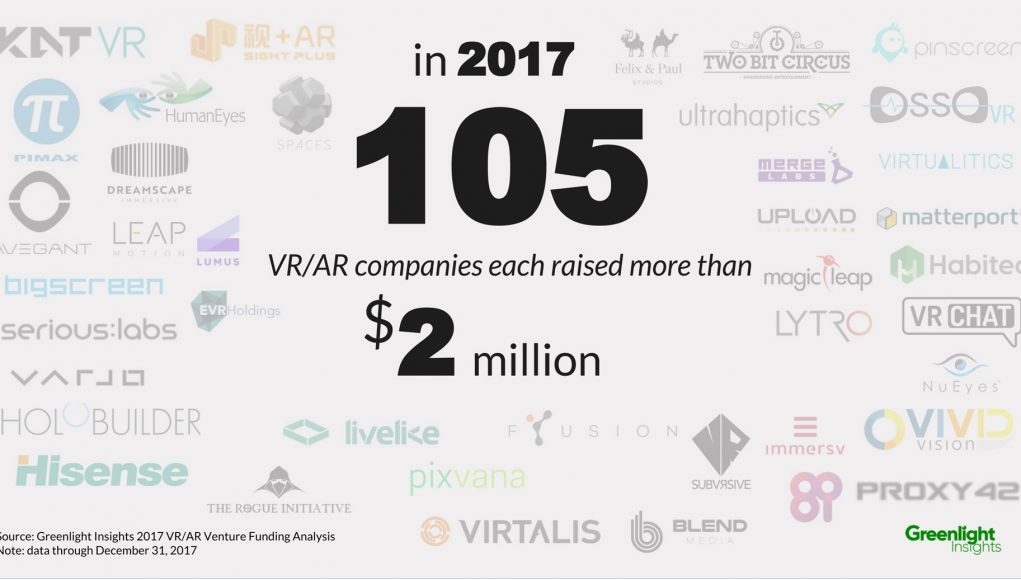In 2017, venture funding of VR/AR companies reached at least $1.9B, ending slightly above 2016. The total number of companies raising venture capital during 2017 outpaced 2016, but the average deal size declined sharply by 35%, according to Greenlight Insights’ annual year-end analysis of individual venture capital deals dating back to 2011.
Each year, Greenlight Insights compiles and qualifies data from private and public sources across North America, Europe, and Asia in order to assess the global venture funding landscape surrounding the VR/AR industry. In 2017, Greenlight Insights analyzed more than 300 individual deals, excluding outlier financings, such as StarVR ($5M in Q4), Unity ($400M in Q2), and Improbable ($502M in Q2).
“The aggregate increase in VR/AR venture deal activity is encouraging, but the reality is that 2017 was tough for most startups in the space,” said Clifton Dawson, CEO at VR/AR market research firm Greenlight Insights.
Similar to past years, the majority of deals in 2017 were early stage (Seed and Series A). The number of early stage deals in 2017 was up 27% YoY and 105 companies raised $2M or more from VCs. However, the average Seed and Series A deal size declined 9% and 17%, respectively.
It may look like virtual and augmented reality’s growth spurt is abating, but it’s important to remember that companies still raised triple the amount of dollars compared to just three years ago.
“A moderating deal size of early stage companies should be viewed as a positive indicator of a healthy funding environment and partly tracks with the larger venture investment picture of 2017,” said Natalie Yue, a Data Analyst with Greenlight Insights that worked on the analysis.
The complete year-end analysis is available as a supplement to the 2017 Virtual Reality Industry Report, which was co-published with Road to VR.







